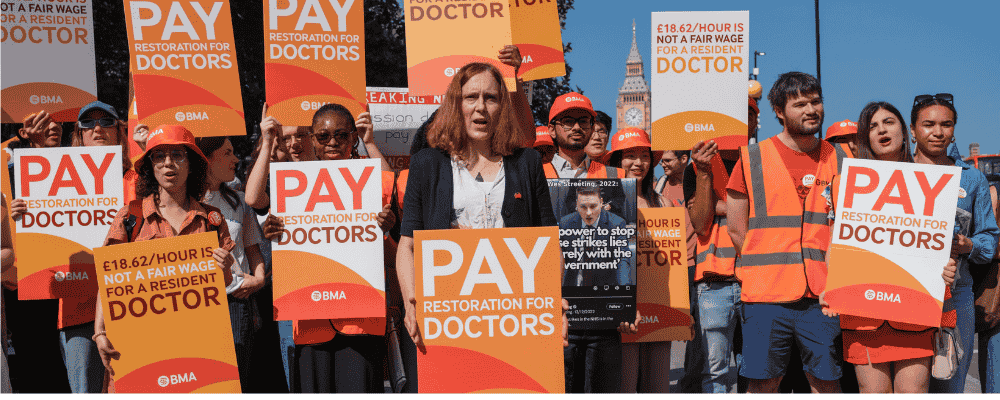LONDON, 30 July 2025 – Thousands of junior doctors in England staged a five-day strike this week, demanding a 29% pay rise to restore earnings to 2008 levels, but the impact on healthcare services was more limited than in previous walkouts.
The strike – running from 7 am Friday 25 July to 7 am Wednesday 30 July – is part of a long-running dispute between the British Medical Association (BMA) and the UK government over pay erosion and working conditions in the National Health Service (NHS).
Junior doctors – also known as resident doctors in many countries – make up around 50% of the UK’s hospital medical workforce and include physicians in training across all specialties. The BMA claims their real-terms pay has fallen by over a quarter since 2008. The government has offered a lower pay increase, arguing that the 29% demand is unaffordable. Talks have stalled for months.
Despite the scale of the strike, NHS England reported that fewer than a third of eligible junior doctors participated. Approximately 93% of planned appointments, operations and diagnostic procedures still went ahead. That marks a significant improvement in service continuity compared to earlier walkouts, with around 10,000 more patients receiving care this time.
The BMA has disputed the official participation figures, arguing that they do not fully account for seasonal variations, annual leave and rota complexities. The union has stated that it remains committed to full pay restoration and will continue industrial action if necessary. It holds a legal mandate to strike through January 2026.
UK Health Secretary Wes Streeting warned that the BMA risks undermining public and professional support. He urged the union to shift focus to working condition reforms rather than pay demands the government says cannot be met.
This strike is the 11th round of industrial action by junior doctors since March 2023. It takes place against broader concerns in the NHS over staffing, waiting lists, and burnout. The UK’s publicly funded health system, free at the point of care, has faced years of strain due to underfunding, the COVID-19 pandemic, and workforce shortages.
The BMA and UK government remain at an impasse, and further strikes are likely unless negotiations resume.


